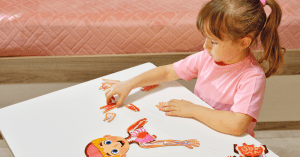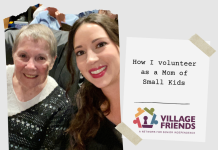I’m naturally a risk-averse person. Growing up, I was not infrequently called a “teacher’s pet” or “goody two-shoes,” or told that I didn’t know how to have fun (to which I always replied, “We have different definitions of ‘fun’.”) Even when I left home for college and was no longer under the supervision of my parents, I didn’t go crazy. I don’t drink in situations where I don’t feel safe and comfortable, which means that I didn’t drink very often in college. I always had to have an exit strategy or know exactly how I was getting home and with whom. I can count on one hand with fingers to spare the number of times I went to a downtown bar. That being said, in my late teens and very early 20s, I still found myself in a few situations that could quickly have turned sideways had the person I was with had ill intent. Thankfully, and through no virtue of my own, abuse and/or assault are not a part of my story. Sadly, they are the stories of many people, and through my undergrad and graduate school experience, I learned that child abuse is more prevalent than any of us would like to believe.
 As a mother, I’m committed to doing everything in my power to protect my babies. I know that there are many things outside my control as a parent, but through my research, I’ve found that there are strategies I can begin using while my children are young to help lower the risk of abuse now and in the future.
As a mother, I’m committed to doing everything in my power to protect my babies. I know that there are many things outside my control as a parent, but through my research, I’ve found that there are strategies I can begin using while my children are young to help lower the risk of abuse now and in the future.
- Teaching and using anatomically correct terms for body parts. We do not regularly use cutesy names or nicknames for parts of our bodies. I may say something like “I’m gonna get those tiny little toesers!” while playing with my kids, but they understand that I’m referring to their toes, because those are what we call them the majority of the time. I always use the anatomically correct term for their private areas, no cutesy monikers allowed. It may make for odd-sounding conversations to other people, or cause me to blush a bit when my daughter loudly declares the differences between boys and girls on the playground, but that’s a small price to pay for their protection. Using the correct terms for body parts removes any ambiguity if something were to happen to my child and they tried to tell an adult. Teachers may not know that a family refers to their child’s genitals as a certain unrelated nickname, but there is no misunderstanding “vulva” or “penis.” All of this was a little awkward for me at first, but I’m doing my best to name and explain bodily functions matter-of-factly and without revealing any discomfort. Any shame baggage or hang-ups I personally have in this area are mine to work through, and I don’t want to pass those to my children.
- Explaining which body parts constitute “private areas.” We’ve already explained to our daughter that certain parts of her body are “private” to her and should not be examined or touched by other people except when she needs help cleaning or if there is a problem that the doctor needs to check out (with parental supervision). She’s currently learning that her little brother also has private areas that belong only to him and we don’t allow her to touch them. We acknowledge that she and her brother have different looking genitals and answer any questions she may have about those differences, while explaining that her parts belong to her and her brother’s parts belong to him. Same rules apply to questions she may have about my body or my husband’s body.
- The difference between secrets and surprises. This one is pretty simple, but requires paying a surprising amount of attention to your language as a parent. The difference between secrets and surprises is the intended longevity. Secrets are intended to be long-term or permanent. Surprises are temporary. My goal is that there are no secrets in our family. We plan surprises, such as birthday presents, parties, or other fun activities, but they are only intended to be kept under wraps for a specific period of time or until a certain date. I tell my kids that no one should ask them to keep secrets, especially from me and their dad.
- Get them involved in their own care. This is a respectful parenting principle that I implemented with both of my kids—out of instinct with my daughter before I’d ever read Janet Lansbury’s work, and much more intentionally with my son now that I have. Janet teaches that from birth, parents should involve their babies in their own care as much as possible so that we do things with our children, not to them. With newborns that just means talking to them and explaining what we are doing before and as we are doing it. With older babies, that may mean also letting them hold the diaper or cream until we’re ready to use it or encouraging them to use a washcloth to clean their own bodies in the bath. I let my kids hold and play with their toothbrushes when we first started learning to brush teeth. Sometimes this meant that they had two brushes at a time, one for me to use and one for them to hold. My son had constipation issues when he first started solid food, and I needed to use solid glycerin suppositories to give him some relief. Before each one, I’d show him everything I was going to use (suppository, glove, vaseline) and explain what I was going to do and why. Then I talked to him as I was doing it. Obviously he still wasn’t a huge fan and at not even a year old, I didn’t expect him to completely understand, but after the first time, he wasn’t overly bothered by it either. I want my kids to be involved and active participants in their own hygiene and health, rather than getting accustomed to things just “happening” to them.
- Encourage, support, and model bodily autonomy. I want my kids to learn that they have ownership and agency over their bodies. When I tickle my daughter, I stop the moment she says stop and don’t start again unless she asks me to. We even made a game out of it, the “Stop and Go Tickle Game.” Another way that we teach bodily autonomy is my husband and I modeling it ourselves. This includes setting and enforcing boundaries with our children touching our bodies in certain ways or at certain times. For me, that means not letting my son play with my belly button or other breast while he nurses because it’s uncomfortable for me. I don’t let my daughter grab and squish my face or pull my hair. I don’t let my son play with the earrings or necklaces that I’m wearing. To support their bodily autonomy, I don’t force my kids to give me hugs or kisses if they don’t want to. I ask for a goodnight hug or kiss, but sometimes my daughter is too busy with books or just isn’t feeling it. I don’t force it, and I don’t act sad or make her feel bad for saying no. I don’t want to intentionally or unintentionally manipulate her with my own feelings about her decisions. It gets trickier with other people like friends and family members. I’ll admit that I’m still muddling my way through this one. Ideally, I want to support my kids by saying something like, “How would you like to say goodbye to [Family Member] today?” and then let them decide if they want a hug, kiss, high five, etc. I don’t want to hurt people’s feelings, but I also want my kids to understand that they have the power to say no, and I will enforce that no for them if necessary.

There are two special circumstances to our bodily autonomy rules: medical care and hygiene. There are going to be times when my kids don’t like the things that they have to do or the things that have to happen to take care of their bodies, but in those cases, we will be upfront in explaining what is going on and why. Despite having discussions about vaccinations for several days leading up to my daughter’s most recent checkup, my husband still had to help the nurse hold her down to administer all the shots while she screamed. There are also nights when my daughter doesn’t want to floss and brush her teeth or times my son doesn’t want his dirty diaper changed. Those things still have to happen despite the protests.
Our strategies for protecting our children will evolve as they get older, but I’m hoping that laying the groundwork now will help our children become confident in their own bodily boundaries and trust that their dad and I are here to support them no matter what. If your family uses additional strategies, please let me know!











